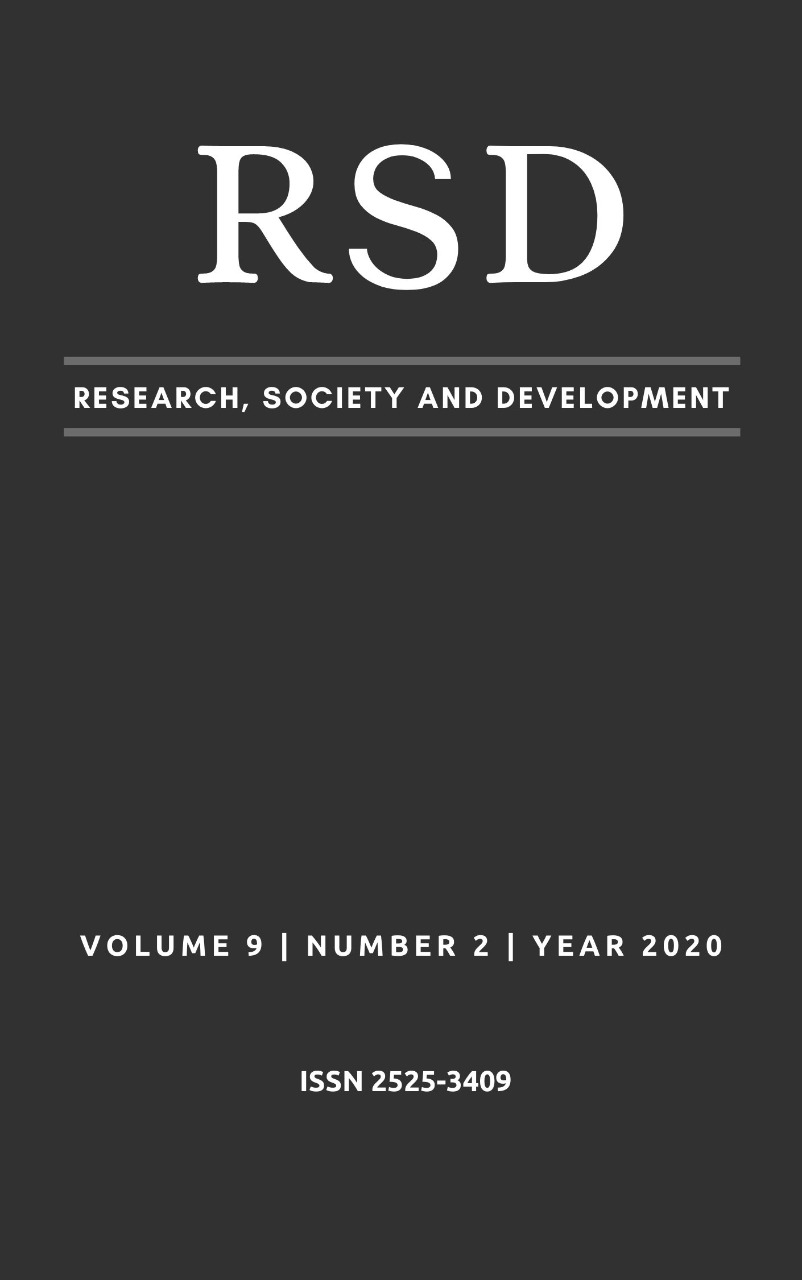A importância do estudo sobre as emoções para a prática pedagógica na Educação Infantil
DOI:
https://doi.org/10.33448/rsd-v9i2.2089Palavras-chave:
Emoções, Educação Infantil, Prática pedagógica.Resumo
Este artigo tem como proposta discutir a importância das emoções para a prática pedagógica na Educação Infantil, visto que é nesta fase de desenvolvimento das crianças em que devemos atentar para o seu desenvolvimento emocional, social e educacional. Mediante a isso, o trabalho apresenta uma metodologia de revisão bibliográfica a partir de livros e artigos que versam sobre a temática, para sustentar os argumentos apresentados pelos autores deste artigo. O objetivo da pesquisa é direcionar uma reflexão para a Educação Infantil, que existe como um espaço de diálogo, de troca e de construções de saberes, no qual consequentemente implica uma prática educativa entrelaçada com as emoções, dispondo com que o ato educacional seja baseado no amor e na esperança, uma vez que as emoções são responsáveis pela expressividade e pela intensidade com que as coisas acontecem e se desenvolvem. Os resultados apresentados focam que a pesquisa sobre a emoção se encaminha para a compreensão dos sem tidos, entrando na percepção e olhar de cada criança e de cada professor, pois é a partir das emoções que as crianças constroem uma imagem de si mesma e do mundo. Além disso, para a prática pedagógica os conhecimentos sobre as emoções direcionam à necessidade de uma sala de aula que deveria ser formada por pessoas que carregam todo um pressuposto de formação subjetiva, e que a busca de enriquecimento da memória de conhecimento e de verdades significativas, direcionam para uma formação integral do professor e do estudante.
Referências
Almeida, A. R. S. (1999). A emoção na sala de aula. Campinas: Papirus.
Alzina, R. (2000). Educación y bienestar. Barcelona: Editorial Práxis, S.A.
Bock, et al. (2008). Psicologias: uma introdução ao estudo de psicologia. (14a ed). São Paulo: Saraiva.
Brasil. (1988) Constituição da República Federativa do Brasil de . Recuperado de http://www.planalto.gov.br/ccivil_03/Constituicao/Constituicao.htm
Brasil. (2017) Base Nacional Comum Curricular. Recuperado de http://basenacionalcomum.mec.gov.br/images/BNCC_EI_EF_110518_versaofinal_site.pdf
Costantino, E. P. et al. (2003). Um olhar da psicologia sobre a educação: diagnóstico e intervenção na infância e na adolescência. São Paulo: Arte e Ciência.
Damásio, A. R. (1996). O erro de Descartes. São Paulo: Companhia das Letras.
Freire, P. (2011). Pedagogia da Autonomia: saberes necessários à prática educativa. (11a ed). São Paulo: Paz e Terra.
Fromm, E. (1987). Ter ou Ser? Rio de Janeiro: LTC.
Gil, A. C. (2007). Como elaborar projetos de pesquisa. São Paulo: Atlas.
Lei n. 9.394, de 20 de dezembro de 1996. Estabelece as diretrizes e bases da educação nacional. Recuperado de http://www.planalto.gov.br/ccivil_03/leis/l9394.htm
Ludwing, A. C. W. (2014). Métodos da Pesquisa em Educação. Recuperado de http://www.periodicos.ufpb.br/index.php/rteo/article/view/18881
Mendonça, F. W. (2012). Teoria e Prática na Educação Infantil. Maringá, PR: UNICESUMAR.
Mahoney, M. J. (1998). Psicoterapia construtivista. In: C. N. Abreu & R. F. Ferreira (Orgs.). Psicoterapia e construtivismo: Considerações teóricas e práticas. Porto Alegre: Artmed.
Morin, E. (2011). Os sete saberes necessários à educação do futuro. (2a ed). São Paulo: Cortez; Brasília, DF: UNESCO.
Neubern, M. (1999). Fragmentos para uma Compreensão Complexa da Terapia Familiar: Diálogos Epistemológicos Sobre as Emoções e a Subjetividade no Sistema Terapêutico. (Dissertação de Mestrado em Psicologia). Universidade de Brasília. Brasília.
Neves, L. M. V. (2014). Educação Básica: tragédia anunciada? São Paulo: Xamã.
Oliveira, Z. R. (2002). Educação Infantil Métodos. São Paulo.
Ramos, A. (2003). Introdução à psicologia social. 4 ed. Santa Catarina: UFSC.
Reis, J. (2013). Art. 29, 30, e 31 da LDB - Educação Infantil. Recuperado de https://colheitadeaprendizagem.blogspot.com/2013/07/art-29-30-e-31-da-ldb-educacao-infantil.html?m=1.
Referencial curricular nacional para a educação infantil. (1998). Recuperado de http://portal.mec.gov.br/seb/arquivos/pdf/rcnei_vol1.pdf
Resolução n. 5, de 17 de dezembro de 2009. Fixa as Diretrizes Curriculares Nacionais para a Educação Infantil. Recuperado de http://www.seduc.ro.gov.br/portal/legislacao/RESCNE005
_2009.pdf
Saltini, C. J. P. (1999). Afetividade e Inteligência: a emoção na educação. (3a ed). Vol. I. Rio de Janeiro: DP&A.
Downloads
Publicado
Edição
Seção
Licença
Autores que publicam nesta revista concordam com os seguintes termos:
1) Autores mantém os direitos autorais e concedem à revista o direito de primeira publicação, com o trabalho simultaneamente licenciado sob a Licença Creative Commons Attribution que permite o compartilhamento do trabalho com reconhecimento da autoria e publicação inicial nesta revista.
2) Autores têm autorização para assumir contratos adicionais separadamente, para distribuição não-exclusiva da versão do trabalho publicada nesta revista (ex.: publicar em repositório institucional ou como capítulo de livro), com reconhecimento de autoria e publicação inicial nesta revista.
3) Autores têm permissão e são estimulados a publicar e distribuir seu trabalho online (ex.: em repositórios institucionais ou na sua página pessoal) a qualquer ponto antes ou durante o processo editorial, já que isso pode gerar alterações produtivas, bem como aumentar o impacto e a citação do trabalho publicado.


